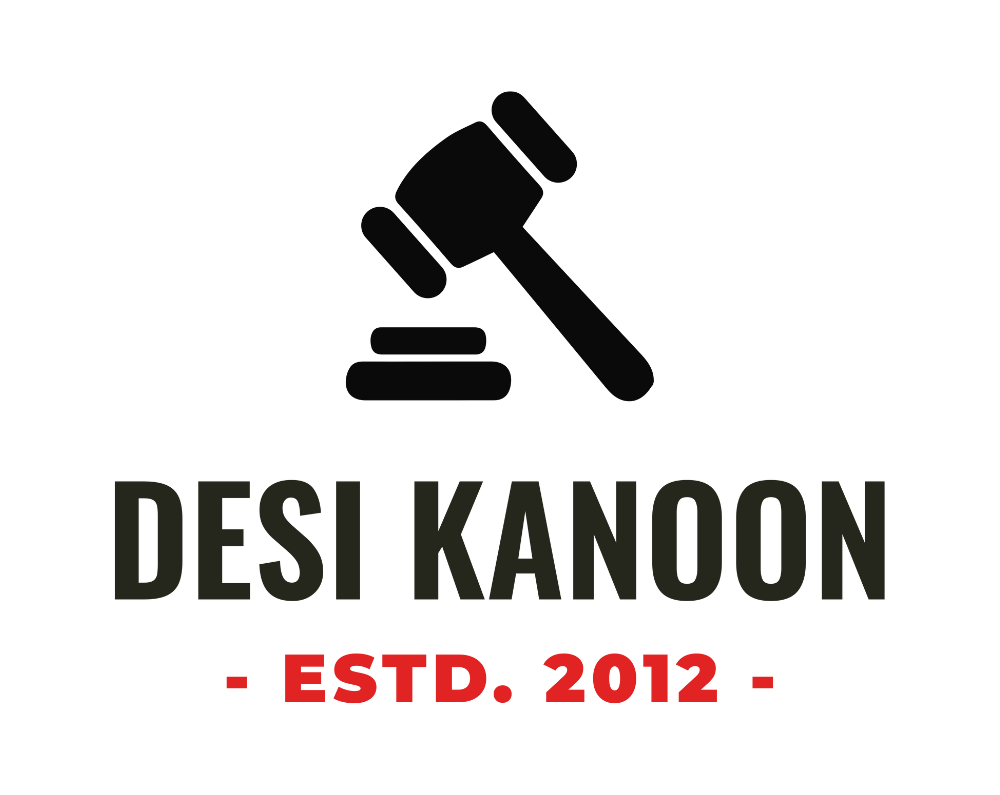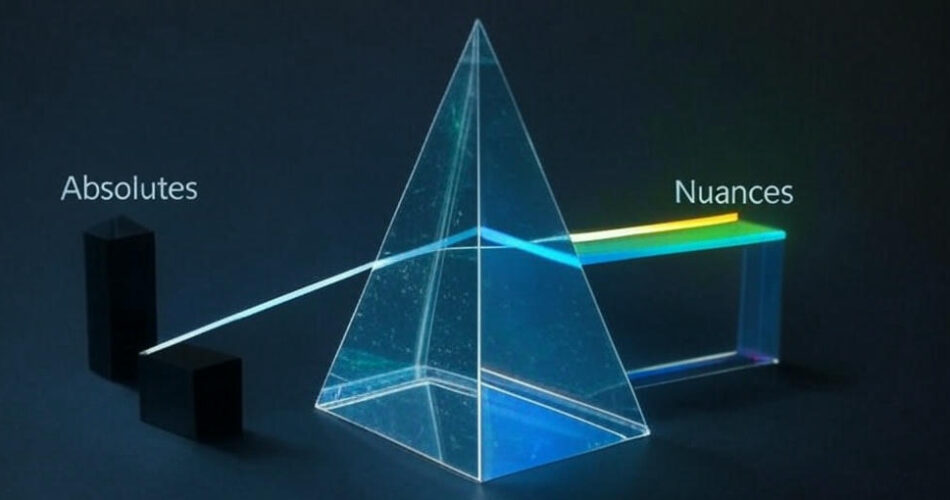I find to be quite a profound statement in philosophical and metaphysical senses. To explain my thoughts on it, let me stary by giving you some contrasting statements: –
Absolute: Metals conduct electricity.
Nuance: Some, like lead, conduct less efficiently than others.
Absolute: People die without food for too long.
Nuance: Survival time depends on body fat and health.
Absolute: Gravity pulls objects downward on Earth.
Nuance: The strength of gravity differs slightly across locations.
Absolute: Clocks measure time.
Nuance: Perception of time can feel faster or slower.
Absolute: The Earth orbits the Sun once a year.
Nuance: The exact time of orbit shifts slightly due to leap years.
These statements reflect a complementary relationship between absolutes and nuances. Every absolute has its own nuances. I am not sure whether such an observation has any meaning at all. Nevertheless, for the sake of a light-hearted amusement-filled enquiry, I deem it fit to continue the pondering on absolutes and nuances.
You will find that the absolutes disregard relativity. I think that is the biggest problem with them. Relativity balances anachronism in a manageable manner. By living in absolutes, one risks becoming anachronistic and temporally astray. It is even more surprising to note that temporal obsolescence is not even acknowledged by most to be a thing in itself, let alone acknowledge the side-effects of it.
In fact, nobody wants to talk about time. Time is relativity incarnate. We understand time in ways that suit us and that are useful to us, but very few are interested in studying time as a subject in itself. I guess that is the sole prerogative of physicists for now. And after a point in time, we start drawing boundaries for our understanding of time. We consciously make efforts to find some absolutes where the understanding of time must end, and the topic of ‘time’ gives way to the so-called ‘common sense’. Time gets simplified, and bingo! Our job is done, we have dug up a great graveyard for our beloved time where it would forever rest in peace and yet be in front of our eyes all the time.
Sometimes I truly think that absolutes are not so bad. By giving an end or closure to things and not unnecessarily questioning for the sake of questioning is a good thing sometimes, especially in sociological parlances. Absolutes make life predictable. Predictability brings comfort and prosperity. Why detest the convenient aspects of life? Why be so harsh on your own conscience. Agreed that we have a brain that can work does not mean that we have to be obsessed with it. It will work anyway, why work too hard to get too few gains in its efficiency. In the end, we can’t change a thing. We may be able to go to space, we may be able to harness all kinds of energy, but so do other living species too in their own respective manners. In ‘In Praise of Idleness’ by Bertrand Russell, there is far too much work being done in this world, and we can be better off without some things that we are creating. There are a lot of things that we do not need, like pressure on kids to perform well at school. Here I can take the side of absolutes and say that okay, my kid should just pass and nothing more, that is the absolute for studies. If he or she achieves it, why think for more.
Now, coming to nuances. They are a different breed altogether. Nuances are kind of absolutes on steroids. They just can’t stop. They have a tendency to stretch boundaries. They do not like being idle. Nuances can be found everywhere and in everything. There cannot be anything where nuances cannot be found if looked for hard enough. Even in the plainest and basest of things, nuances are easy to discern and decipher. Nuances are what make everything interesting. No doubt, absolutes provide stability, but nuances do not care for it. Nuances are bothered by the subtle changes in the state of affairs, and even the tiniest of disturbances bring great joy to a person well-versed in a particular nuance. I too love nuance. Writing, coding, gaming, thinking, etc., are things that would simply hit a wall in terms of progress if nuances were not there.
So, who would win if there were an ultimate clash of titans? Absolutes or nuances? My guess is ‘absolutes’ because in terms of brute force, absolutes are unbeatable. Nuances may be sneaky and may be able to play the game of hide and seek by disguising themselves in plain reality, yet nuances are no warriors. That is definitely the job of the absolutists. The middle ground here is that both nuances and absolutes seem complementary to each other, and the world would become an utterly boring place if either of the two is absent. Life without absolutes would be so much harder, and even the tiniest of tasks would require the most humongous of efforts to complete them. Similarly, a life without nuances would be a life without colors, taste, flavor, and variety. Nuances are like the hidden agents of entropy. They sneak past the absolutes, make subtle changes, and then sit tight for others to notice.
Let me conclude by saying that it is not wrong to say that absolutes and nuances are two sides of the same coin, i.e., the nature of reality. Things cannot exist in a vacuum, and the same is true for absolutes and nuances. They too cannot exist in a vacuum and are part of intricately complex systems most of the time.

